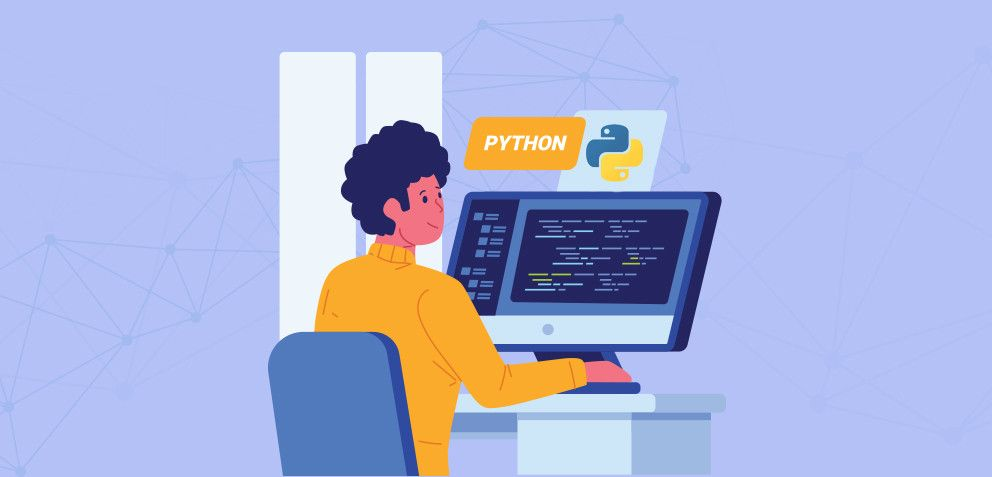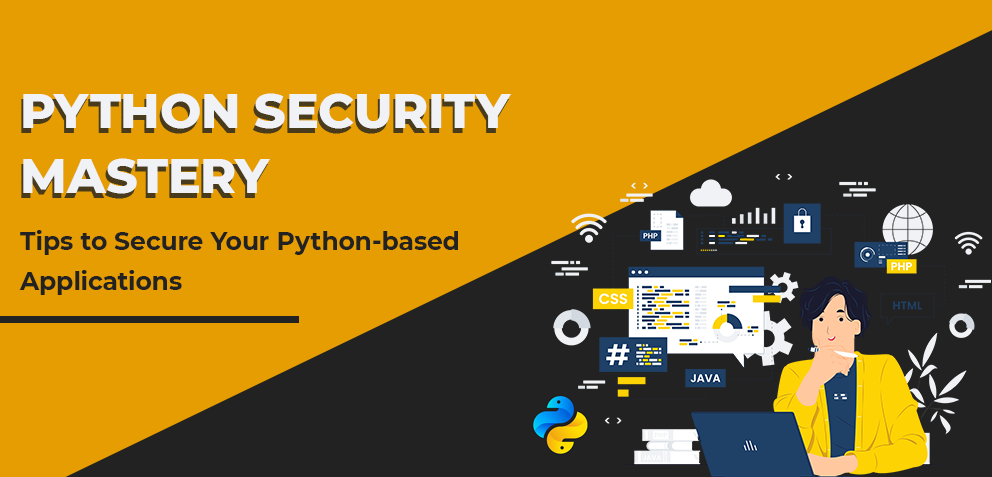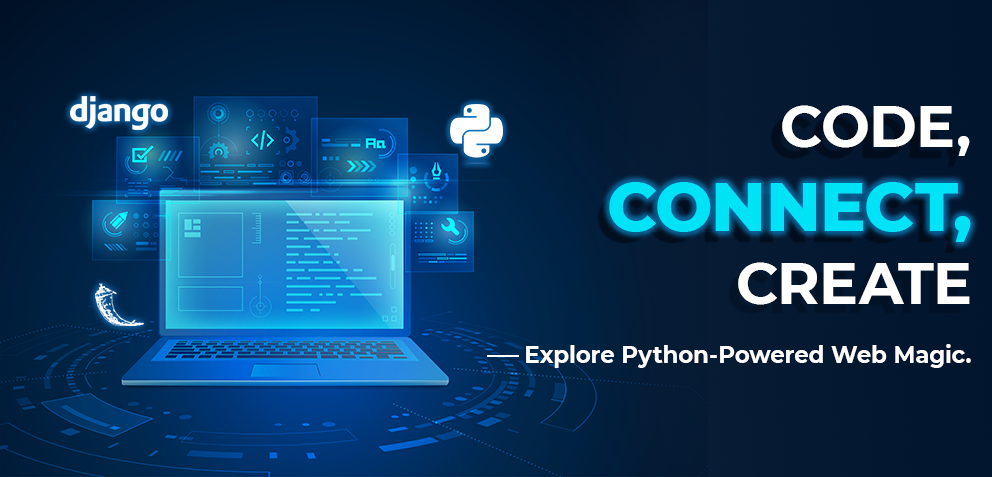How Python is Accelerating Digital Innovation Across Industries

Table Of Contents
 Stay In-the-loop
Stay In-the-loop
Get fresh tech & marketing insights delivered right to your inbox.
Share this Article
Tags
Category
- .Net Developer
- Adtech
- Android App Development
- API
- App Store
- Artificial Intelligence
- Blockchain Development
- Chatbot Development
- CMS Development
- Cybersecurity
- Data Security
- Dedicated Developers
- Digital Marketing
- Ecommerce Development
- Edtech
- Fintech
- Flutter app development
- Full Stack Development
- Healthcare Tech
- Hybrid App Development
- iOS App Development
- IT Project Management
- JavaScript development
- Laravel Development
- Magento Development
- MEAN Stack Developer
- MERN Stack Developer
- Mobile App
- Mobile App Development
- Nodejs Development
- Progressive Web Application
- python development
- QA and testing
- Quality Engineering
- React Native
- SaaS
- SEO
- Shopify Development
- Software Development
- Software Outsourcing
- Staff Augmentation
- UI/UX Development
- Web analytics tools
- Wordpress Development
Why are some businesses ahead of the competition by leaps and bounds?
A big part of their success often lies in their technology stack. Increasingly, the secret ingredient is Python.
Python’s versatility is unparalleled in data science and machine learning, web development, and artificial intelligence. It’s like having a Swiss Army knife for your digital projects.
Want to know how Python can supercharge your business?
Keep reading to discover how this powerful language is transforming industries across the globe.
Python’s Role in Digital Innovation: An Overview
Python’s versatility and readability have made it a catalyst for digital innovation. From data science and machine learning to web development and artificial intelligence, Python’s applications are vast and ever-expanding.
With its extensive libraries and frameworks, Python empowers developers to build complex and efficient solutions. Its clean syntax and emphasis on readability make it easy to learn and maintain, fostering collaboration and innovation.
Current Trends in Python for Digital Innovation
Python has emerged as a versatile and powerful language, driving innovation across various digital domains. Its readability, flexibility, and extensive libraries have made it a preferred choice for developers worldwide. Let’s explore some of the key trends in Python for digital innovation:
Data Science and Machine Learning
Several libraries, such as NumPy, Pandas, Scikit-learn, and TensorFlow, have made Python the top choice for data science and machine learning. Data scientists use Python for cleaning, analysis, data analysis, and model building. Python offers many capabilities, from deep learning to predictive analytics.
Web Development
Python’s simplicity and scalability have made it a famous desire for web development. Frameworks like Django and Flask provide powerful tools for building web packages effectively.
This framework handles everyday duties like routing, templating, and database connections and allows developers to be aware of creating precise and interactive web experiences.
Artificial Intelligence and Robotics
Python’s role in AI and robotics is simple. Libraries like OpenCV and PyTorch permit builders to build sensible systems that can see, recognize, and interact with the sector.
Python is at the leading edge of AI studies and development, from pc imaginative and prescient to natural language processing.
Internet of Things (IoT)
The IoT revolution has led to a demand for more efficient and scalable software program answers. Python’s lightweight nature and compatibility with various hardware systems make it perfect for IoT improvement.
RELATED READ: Python Web App Development Handbook: The Ultimate Guide
Cloud Computing and DevOps
Python is an essential tool for cloud-native programming because it is interoperable with cloud platforms such as AWS, Azure, and GCP. Python frameworks and tools make cloud infrastructure automation, deployment, and maintenance easier.
Furthermore, Python plays a big part in DevOps because of tools like SaltStack and Ansible that automate activities and enhance communication between the development and operations teams.
Microservices Architecture
The increasing popularity of microservices architecture is due to its scalability and flexibility. Python is a good option for building microservices because it allows developers to independently create, deploy, and scale small, standalone services.
Additionally, creating individual microservices is achievable by utilizing platforms like Flask and Django.
Natural Language Processing (NLP)
Python’s natural language processing (NLP) modules, like spaCy, NLTK, and Gensim, have absolutely changed the field. These libraries include sources for developing chatbots, gadget translation, sentiment analysis, and text categories.
Python is popular for researchers and builders working on NLP tasks due to its ease of use and adaptability.
Ready to Take Your Business to Next-Level?
With our custom Python app development services, we can help you attract new customers, increase sales, and boost your brand presence.
Utilizing Python in Digital Innovation: Challenges
Python has emerged as a top choice for driving digital innovation due to its versatility and ease of use. However, despite its many advantages, Python comes with its challenges when applied to cutting-edge digital projects. Let’s explore these hurdles:
-
Performance Limitations
Since it is interpreted, Python is slower than compiled languages like C++ or Java. Performance bottlenecks can occur when handling complicated computations or large-scale applications. Python’s simplicity must be balanced with performance needs, and developers frequently supplement it with more efficient languages as needed.
-
Memory Consumption
Compared to other languages, Python uses more memory, mainly when processing large amounts of data. This can be a severe disadvantage for settings with constrained memory, such as mobile apps or Internet of Things devices, requiring further optimization work.
-
Global Interpreter Lock (GIL)
The GIL restricts Python’s ability to fully leverage multi-core CPUs by preventing several native threads from running code simultaneously. Python’s limited concurrency makes this a problem for applications that rely on parallel processing, such as real-time or machine-learning projects.
-
Mobile Development Constraints
Although Python is a great language for desktop and web applications, it doesn’t have much support for developing mobile apps. Despite tools like Kivy or BeeWare, Python is still not as effective or often used for this purpose for companies striving for mobile-first innovation.
-
Dependency Management:
Managing Python dependencies and libraries may get challenging, particularly for large-scale projects. Simple development processes can become more difficult due to delays caused by versioning problems or library incompatibilities.
READ MORE: Guide 101: Best Security Tips for Python Developers
Python in Digital Innovation: Best Practices
So, what can you do to navigate these challenges? Follow these tips for utilizing Python in digital innovation. Read on!
-
Choose the Right Framework
Django and Flask are popular choices for web development. Django provides a robust framework with built-in features, while Flask offers a more minimalistic approach. Select the framework that best aligns with your project’s requirements and your team’s expertise.
Transform Your Ideas Into Reality with Top Python Talent
Hire Python Developers!
-
Leverage Python’s Rich Ecosystem
Python’s vast library ecosystem offers solutions for nearly any kind of task. Utilize tools like NLTK, NumPy, Pandas, Scikit-learn, TensorFlow, and NLTK to improve the functionality of your project and expedite development.
-
Prioritize Code Readability
Python’s simple syntax and emphasis on readability make writing and maintaining code more accessible. Comments, uniform formatting, and prominent variable names enhance code comprehension and cooperation.
-
Embrace Object-Oriented Programming
Python’s object-oriented programming (OOP) paradigm encourages modularity, reusability, and code structuring. Classes and objects are utilized to model real-world concepts and build well-structured programs.
-
Consider Asynchronous Programming
Asynchronous programming can significantly improve performance for I/O-bound tasks. Python’s async and await keywords and libraries like asyncio enable you to write non-blocking code, making your applications more responsive.
-
Optimize for Performance
While Python is generally efficient, performance can become a bottleneck for large-scale applications. Profile your code to identify performance-critical areas and optimize them using techniques like caching, vectorization, and algorithmic improvements.
-
Invest in Dedicated Developers
To maximize the benefits of Python, consider hiring dedicated Python developers. They possess the expertise and experience to efficiently implement your project’s requirements efficiently, ensuring high-quality code and timely delivery.
ALSO READ: A Hiring Roadmap for Top-Tier .NET Developers
Harness Python in Digital Innovation with Magicminds!
At Magicminds, we’re experts in using Python’s capabilities to develop innovative solutions. Our proficient Python programmers are well-versed in frameworks such as Django and Flask, guaranteeing scalable and high-performing applications.
Why Opt for Magicminds?
- Custom Solutions: We adapt our strategy to meet your particular requirements.
- Skilled Developers: We have top-notch Python developers with a successful track record.
- Quality Assurance: Providing dependable, error-free products is our top priority.
- Timely Delivery: We meet project deadlines without compromising quality.
Ready to Transform Your Business?
Contact Magicminds today to discuss your Python project. Our experts will guide you through the process, from initial consultation to final delivery.
Hire our Python Developers Now!
Transform your Business with Python App Development
Go Digital and Boost Your Market Presence with Python
Why are some businesses ahead of the competition by leaps and bounds? A big part of their success often lies in their technology stack. Increasingly, the secret ingredient is Python. Python’s versatility is unparalleled in data science and machine learning, web development, and artificial intelligence. It’s like having a Swiss Army knife for your digital projects. Want to know how Python can supercharge your business?
Keep reading to discover how this powerful language is transforming industries across the globe.
| Table of Contents!
Python’s Role in Digital Innovation: An Overview Current Trends in Python for Digital Innovation Utilizing Python in Digital Innovation: Challenges Python in Digital Innovation: Best Practices Harness Python in Digital Innovation with Magicminds! |
Python’s Role in Digital Innovation: An Overview
Python’s versatility and readability have made it a catalyst for digital innovation. From data science and machine learning to web development and artificial intelligence, Python’s applications are vast and ever-expanding.
With its extensive libraries and frameworks, Python empowers developers to build complex and efficient solutions. Its clean syntax and emphasis on readability make it easy to learn and maintain, fostering collaboration and innovation.
Current Trends in Python for Digital Innovation
Python has emerged as a versatile and powerful language, driving innovation across various digital domains. Its readability, flexibility, and extensive libraries have made it a preferred choice for developers worldwide. Let’s explore some of the key trends in Python for digital innovation:
Data Science and Machine Learning
Several libraries, such as NumPy, Pandas, Scikit-learn, and TensorFlow, have made Python the top choice for data science and machine learning. Data scientists use Python for cleaning, analysis, data analysis, and model building. Python offers many capabilities, from deep learning to predictive analytics.
Web Development
Python’s simplicity and scalability have made it a famous desire for web development. Frameworks like Django and Flask provide powerful tools for building web packages effectively.
This framework handles everyday duties like routing, templating, and database connections and allows developers to be aware of creating precise and interactive web experiences.
Artificial Intelligence and Robotics
Python’s role in AI and robotics is simple. Libraries like OpenCV and PyTorch permit builders to build sensible systems that can see, recognize, and interact with the sector.
Python is at the leading edge of AI studies and development, from pc imaginative and prescient to natural language processing.
Internet of Things (IoT)
The IoT revolution has led to a demand for more efficient and scalable software program answers. Python’s lightweight nature and compatibility with various hardware systems make it perfect for IoT improvement.
RELATED READ: Python Web App Development Handbook: The Ultimate Guide
Cloud Computing and DevOps
Python is an essential tool for cloud-native programming because it is interoperable with cloud platforms such as AWS, Azure, and GCP. Python frameworks and tools make cloud infrastructure automation, deployment, and maintenance easier.
Furthermore, Python plays a big part in DevOps because of tools like SaltStack and Ansible that automate activities and enhance communication between the development and operations teams.
Microservices Architecture
The increasing popularity of microservices architecture is due to its scalability and flexibility. Python is a good option for building microservices because it allows developers to independently create, deploy, and scale small, standalone services.
Additionally, creating individual microservices is achievable by utilizing platforms like Flask and Django.
Natural Language Processing (NLP)
Python’s natural language processing (NLP) modules, like spaCy, NLTK, and Gensim, have absolutely changed the field. These libraries include sources for developing chatbots, gadget translation, sentiment analysis, and text categories.
Python is popular for researchers and builders working on NLP tasks due to its ease of use and adaptability.
| Ready to Take Your Business to Next-Level?
With our custom Python app development services, we can help you attract new customers, increase sales, and boost your brand presence. |
Utilizing Python in Digital Innovation: Challenges
Python has emerged as a top choice for driving digital innovation due to its versatility and ease of use. However, despite its many advantages, Python comes with its challenges when applied to cutting-edge digital projects. Let’s explore these hurdles:
-
Performance Limitations
Since it is interpreted, Python is slower than compiled languages like C++ or Java. Performance bottlenecks can occur when handling complicated computations or large-scale applications. Python’s simplicity must be balanced with performance needs, and developers frequently supplement it with more efficient languages as needed.
-
Memory Consumption
Compared to other languages, Python uses more memory, mainly when processing large amounts of data. This can be a severe disadvantage for settings with constrained memory, such as mobile apps or Internet of Things devices, requiring further optimization work.
-
Global Interpreter Lock (GIL)
The GIL restricts Python’s ability to fully leverage multi-core CPUs by preventing several native threads from running code simultaneously. Python’s limited concurrency makes this a problem for applications that rely on parallel processing, such as real-time or machine-learning projects.
-
Mobile Development Constraints
Although Python is a great language for desktop and web applications, it doesn’t have much support for developing mobile apps. Despite tools like Kivy or BeeWare, Python is still not as effective or often used for this purpose for companies striving for mobile-first innovation.
-
Dependency Management:
Managing Python dependencies and libraries may get challenging, particularly for large-scale projects. Simple development processes can become more difficult due to delays caused by versioning problems or library incompatibilities.
READ MORE: Guide 101: Best Security Tips for Python Developers
Python in Digital Innovation: Best Practices
So, what can you do to navigate these challenges? Follow these tips for utilizing Python in digital innovation. Read on!
-
Choose the Right Framework
Django and Flask are popular choices for web development. Django provides a robust framework with built-in features, while Flask offers a more minimalistic approach. Select the framework that best aligns with your project’s requirements and your team’s expertise.
| Transform Your Ideas Into Reality with Top Python Talent
Share your ideas with our team and convert your ideas into tangible solutions to stand out. |
-
Leverage Python’s Rich Ecosystem
Python’s vast library ecosystem offers solutions for nearly any kind of task. Utilize tools like NLTK, NumPy, Pandas, Scikit-learn, TensorFlow, and NLTK to improve the functionality of your project and expedite development.
-
Prioritize Code Readability
Python’s simple syntax and emphasis on readability make writing and maintaining code more accessible. Comments, uniform formatting, and prominent variable names enhance code comprehension and cooperation.
-
Embrace Object-Oriented Programming
Python’s object-oriented programming (OOP) paradigm encourages modularity, reusability, and code structuring. Classes and objects are utilized to model real-world concepts and build well-structured programs.
-
Consider Asynchronous Programming
Asynchronous programming can significantly improve performance for I/O-bound tasks. Python’s async and await keywords and libraries like asyncio enable you to write non-blocking code, making your applications more responsive.
-
Optimize for Performance
While Python is generally efficient, performance can become a bottleneck for large-scale applications. Profile your code to identify performance-critical areas and optimize them using techniques like caching, vectorization, and algorithmic improvements.
-
Invest in Dedicated Developers
To maximize the benefits of Python, consider hiring dedicated Python developers. They possess the expertise and experience to efficiently implement your project’s requirements efficiently, ensuring high-quality code and timely delivery.
ALSO READ: A Hiring Roadmap for Top-Tier .NET Developers
Harness Python in Digital Innovation with Magicminds!
At Magicminds, we’re experts in using Python’s capabilities to develop innovative solutions. Our proficient Python programmers are well-versed in frameworks such as Django and Flask, guaranteeing scalable and high-performing applications.
Why Opt for Magicminds?
- Custom Solutions: We adapt our strategy to meet your particular requirements.
- Skilled Developers: We have top-notch Python developers with a successful track record.
- Quality Assurance: Providing dependable, error-free products is our top priority.
- Timely Delivery: We meet project deadlines without compromising quality.
Ready to Transform Your Business?
Contact Magicminds today to discuss your Python project. Our experts will guide you through the process, from initial consultation to final delivery.
Hire our Python Developers Now!
Transform your Business with Python App Development
Go Digital and Boost Your Market Presence with Python

